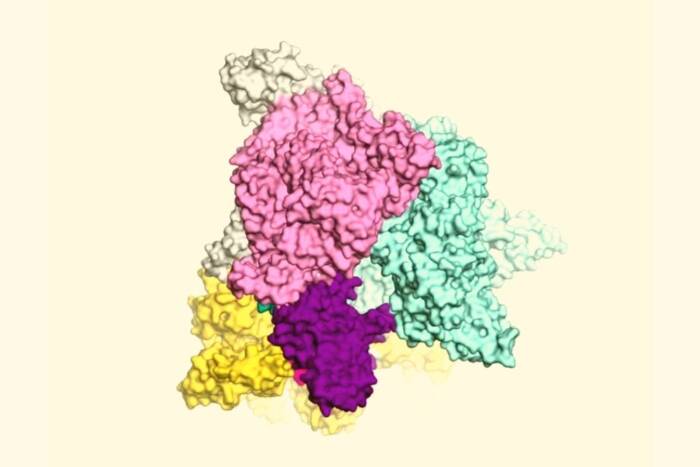Agata Smogorzewska, who studies DNA repair, promoted to associate professor
Agata Smogorzewska, a physician-scientist and head of the Laboratory of Genome Maintenance, has been promoted to associate professor, effective July 1. Smogorzewska came to Rockefeller as a faculty member in 2009 to study DNA repair processes that occur during cellular replication.

Agata Smogorzewska
“The genome is constantly accumulating damage — from sunlight, from toxins, and during DNA replication, which together can introduce thousands of lesions. If these errors are not fixed, or fixed incorrectly, the result can be cancer or problems with the maintenance of stem cells, such as those in bone marrow that give rise to blood cells,” Smogorzewska says. “My lab investigates repair that occurs while the cell is copying its genome, and we do so through the lens of rare genetic disorders, such as Fanconi anemia and the kidney disease karyomegalic interstitial nephritis, in which this pathway does not function as it should.”
Smogorzewska received her Ph.D. from Rockefeller in 2002, where she was a member of Titia de Lange’s lab, and her M.D. from Weill Cornell Medical College in 2003. She did a clinical pathology residency at Massachusetts General Hospital, and postdoctoral work in Stephen Elledge’s lab at Harvard Medical School. In Elledge’s lab, she identified the gene FANCI, part of a pathway that removes inappropriate attachments between DNA strands, a process called DNA interstrand crosslink repair. Mutations in this gene, or other members of the pathway, results in Fanconi anemia, which brings infertility, bone marrow failure, and a high incidence of cancer.
Since arriving at Rockefeller in 2009, Smogorzewska has sought to uncover the molecular mechanisms of interstrand crosslink repair and to understand how dysfunction in this repair leads to disease. The university’s International Fanconi Anemia Registry (IFAR), which now includes information and cells lines from more than 1,000 families, has provided a powerful tool to help her lab identify the genes involved — information that can then be used to tease out the mechanistic aspects of the pathway. Her lab has started by sequencing samples from patients for whom the genetic cause of their Fanconi anemia was unknown and to date it has identified two new Fanconi anemia genes, SLX4/FANCP, and UBE2T/FANCT, with more candidate genes in the pipeline.
The Smogorzewska lab has shown that the DNA-repair protein known as SLX4 played a critical role in DNA interstrand crosslink repair and that mutations in the SLX4 gene caused Fanconi anemia. SLX4 is an unusual protein in that it binds to three separate nucleases, enzymes that cut DNA. These nucleases are essential to fixing DNA during replication; one of them, XPF, is an important player in interstrand crosslink repair. Her lab showed that to participate in these repair pathways, the nucleases must first bind to SLX4, and she is continuing to investigate how SLX4 regulates events within these distinct pathways.
In more recent work, Smogorzewska and her colleagues discovered a third Fanconi anemia gene, RAD51/FANCR. The RAD51 protein was already known to be important for another DNA repair process, called homologous recombination; however, she and colleagues discovered that a dominant mutation in RAD51 in a registry patient interfered with ICL repair, but not homologous recombination.
“Identification of new genes is a terrific point of entry to understand the mechanism and function of interstrand crosslink repair. The registry has been an amazing resource and Rockefeller provides the most engaging and stimulating environment for me and for the talented scientists in my lab” she says.
A number of projects, including the ongoing search for new genes important for DNA repair, are now underway in her lab. Among them, she is studying the pathogenesis of karyomegalic interstitial nephritis, which arises from mutations in the FAN1 gene, another component of the interstrand crosslink repair pathway, which the lab identified. Smogorzewska is also beginning to catalog and assess the genomic changes in head and neck cancers from Fanconi anemia patients.
“I am very pleased to announce Agata’s promotion to associate professor. Since her arrival six years ago, Agata has established a rigorous research program using patient data to not only better understand devastating disease, but also to elucidate fundamental mechanisms essential to human health,” says Marc Tessier-Lavigne, the university’s president. “As she continues this work as an associate professor, I anticipate that she will reveal exciting new insights on this important repair pathway, and, more broadly, into the means by which the human genome protects its integrity against constant assault.”


